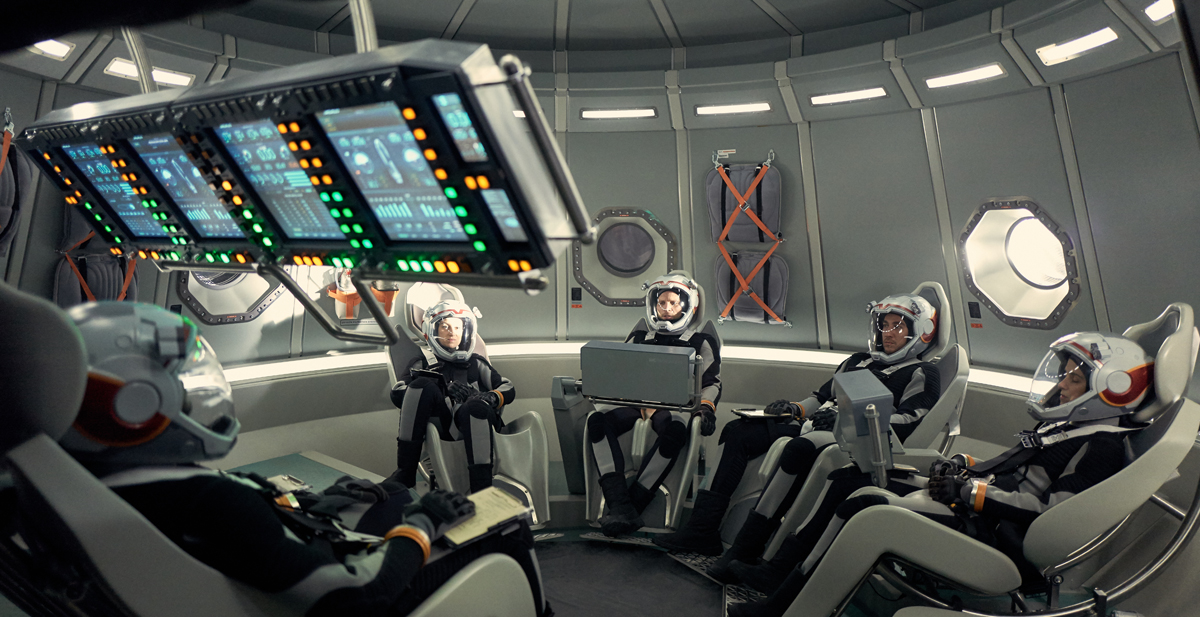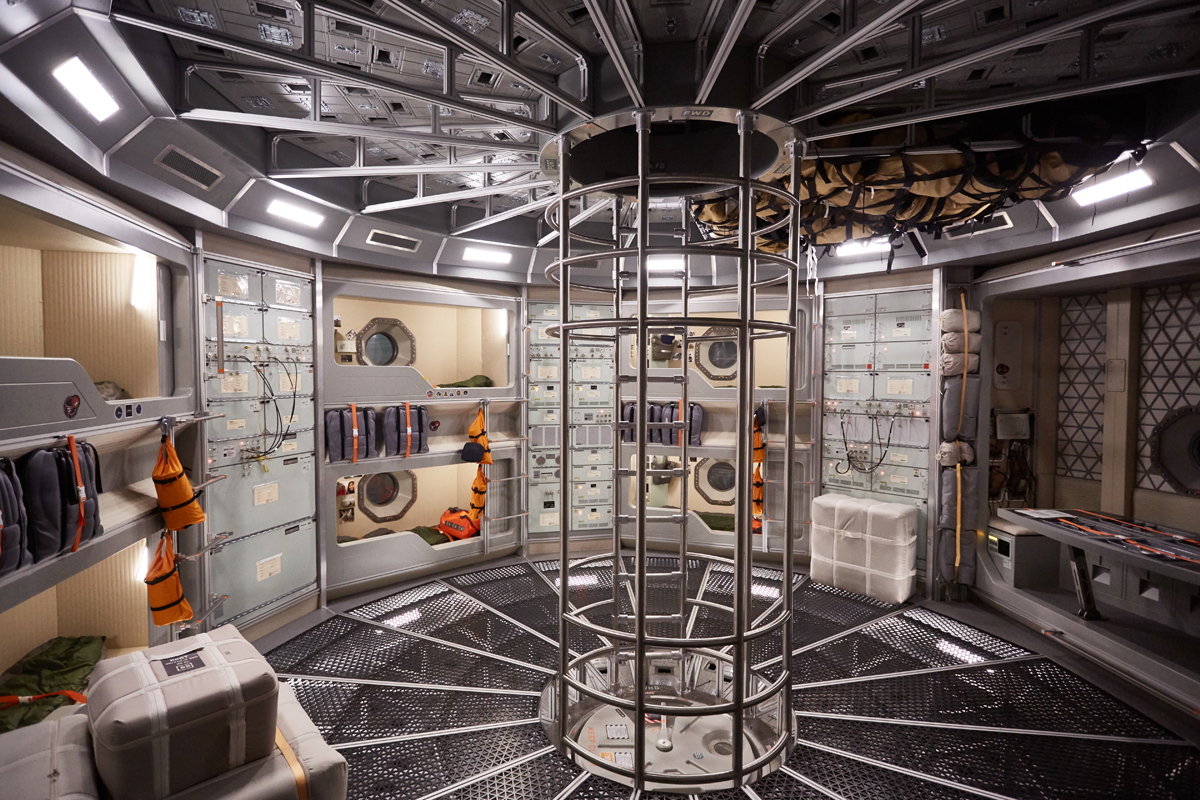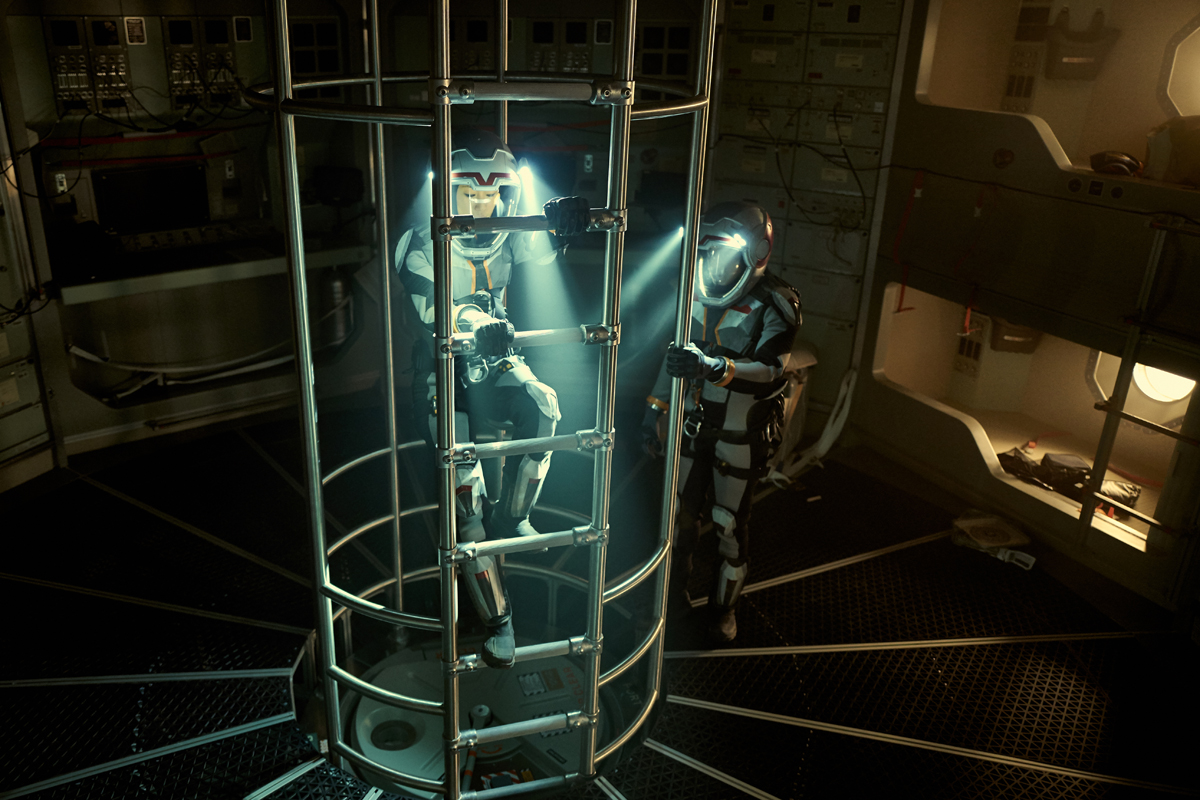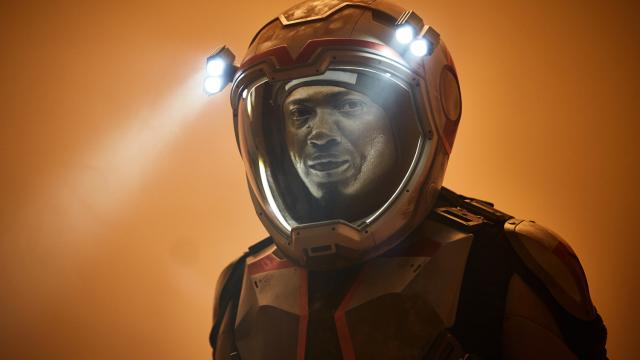National Geographic’s new TV miniseries Mars has a message for the people of Earth: Colonising the Red Planet is not a pipe dream. In fact, it’s achievable within a generation. Unfortunately, in the first few episodes at least, that message smothers the show’s ability to tell a good story. Mars is much more enjoyable when it’s not trying to cram facts, figures and carefully scripted interviews down our throats.
Images: National Geographic
Part documentary, part science fiction, Mars chronicles humanity’s journey to colonise the Red Planet by mixing real-life interviews with a fictional story, beginning in 2033, about the first crewed mission to the surface aboard a spacecraft called Daedalus. The trouble with its first two episodes, the second of which will air 9:30 tonight, is that they are so fixated on making humanity’s journey to the Red Planet feel real there seems to be little bandwidth left for developing interesting characters.

Early on, the fictional story is told documentary-style, relying heavily on voice overs and fake interviews with the six-person crew who — perhaps a bit too realistically — sound like they’re reading scripted responses written by the International Mars Science Foundation’s PR team. Moments of natural interaction between the Daedalus crew-mates are few and far between in the premiere episode, the result being that when they are thrust into life-threatening danger in the second episode, it’s rather difficult to care.
Part of the reason the show is slow to develop its characters is that a big chunk of air time is spent doing something else entirely: Being an actual documentary. Each episode’s documentary clips focus on a different aspect of the modern-day space race that parallels the challenges the shows’ fictional characters are facing. The first episode focuses on Elon Musk’s SpaceX and the quest to develop re-usable rockets; cut to 2033 and a future version of the Falcon 9’s retro-propulsion system is being used to land people on Mars. The second episode draws attention to NASA astronaut Scott Kelly’s One Year Mission and the various ways that spaceflight can ravage the body, including the journey to Mars in 2033.

Clearly, the goal of this unconventional format is to make the 2033 story feel like the natural outcome of science and technology circa 2016, and in that sense the show succeeds. Mars is painfully, brutally realistic, whether it’s showing helpless crew members plunging to the Red Planet in a fiery metal tube, helpless mission control operators realising they can’t alert the crew of danger because of the communication lag, or helpless scientists staring dumbfounded at some weird telemetry data on their computer screens. But the transitions between documentary and fiction are often clunky, and the challenges tend to feel forced.
There are some great things about Mars. The photography and visual effects are stunning. The spacesuits are slick but realistic; the habitats and vehicles look like they have been designed by the brightest engineering minds at NASA. The fictional narrative, while plodding throughout most of the first two episodes, still manages to deliver a handful of heart-pounding action sequences.

Mars is also an excellent primer for anybody who wants to learn about the modern space race, from recent scientific missions to Mars to cutting-edge research on the International Space Station to the burgeoning commercial space industry. Stephen Petranek, author of the book How We’ll Live on Mars, which helped inspire the production, told Space.com that the idea behind Mars was that “people would actually learn something while watching it”. Assuredly, you will.
And if you make it to episodes three and four (of which I got advanced preview copies), the story really starts to take off, with documentary elements, voiceovers and fake interviews receding into the background. Hopefully, the rest of the miniseries will continue improving, and tell a compelling, character-driven story about humanity’s perilous, near future journey to the Red Planet. If it does, I’m willing to let its choppy, overly didactic opening slide. Mars just needs to keep its focus on characters over rocket specs, and on entertainment over information.
